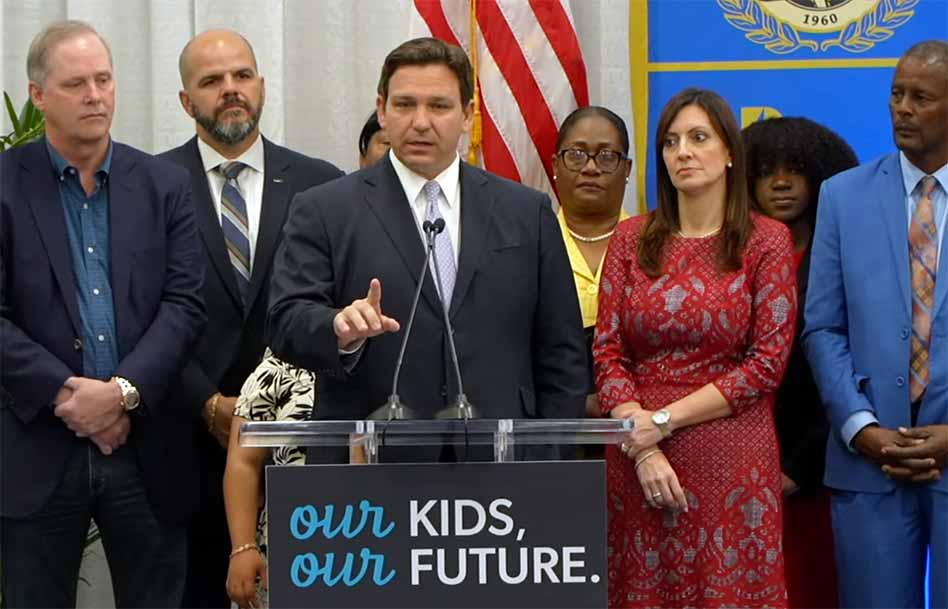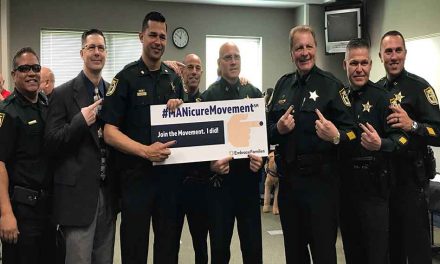Governor Ron DeSantis was joined by foster families and legislative leaders on Tuesday to sign Senate Bill 7034, furthering Florida’s support for foster families. Among its provisions, Senate Bill 7034 raises monthly payments for relative and non-relative care givers, increases the monthly subsidy for child care and expands postsecondary education waivers for foster children. Since 2019 Florida has added more than 4,000 foster families across the state.
“My administration is committed to supporting our most vulnerable children and Florida has already added 4,000 more licensed foster parents than we had in 2019,” said Governor Ron DeSantis. “Not only does this bill allow us to expand our support for foster parents, but it also creates more opportunities for foster children. Including our work on early literacy and fatherhood, Florida is a national leader in setting young children up for success.”
“There is no more important institution in our society than the family,” said Lieutenant Governor Jeanette Nuñez. “By signing this bill, we are placing our foster children on a path to excellence, in which they can achieve their God-given potential. Our administration has made it a priority to ensure that children can thrive in every aspect of their lives, and today is yet another amazing win for children in the Sunshine State.”
The bill amends section 39.5085, Florida Statutes, by providing an increase in monthly payment for relative and non-relative caregivers to be equal to the room and board rate for a licensed foster home. This change is important because often, placing children with relatives or family friends is the best outcome to ensure their future success. Previously, relative and non-relative caregivers received $250-$320 less per month than licensed foster homes.
“I aged out of foster care in Miami-Dade County and I took a tuition waiver. It was my first experience in college and I always say it was the foundation to my success” said Demarco Mott, Former Foster Youth. “I am now serving on the board of directors of Educate Tomorrow. We hear the stories, we get the calls and we needed this. It is definitely exciting to know that we can do a lot more. Policy makers are listening and providing more money and now we can go ahead and do more good work. When we can invest in our children now, we get that reward in our society later.”
Additionally, the bill creates a $200 per month child-care subsidy for any foster parent and relative or nonrelative who has a child between the age of birth to school entry placed in their home. This program will ensure every foster child has access to early learning programs and will help foster parents afford to enroll these children in child care.
“We are forever grateful for foster parents and caregivers who open their homes to children during a vulnerable time in their life. This new legislation will make it easier for the Department to recruit foster parents to ensure every child has a welcome home that fits their needs,” said Department of Children and Families Secretary Shevaun Harris. “We have made it a goal to equip former foster youth with the right tools to become economically self-sufficient, and the expansion of the tuition and fee waiver through this bill will be a tremendous support.”
The bill also amends section 1009.25, Florida Statutes, to reorganize and expand the population of students eligible for the tuition and fee waiver for children who have interacted with the dependency system. The program provides for exemptions from the payment of tuition and fees at workforce education programs, Florida College System institutions or state universities. Previously, exemptions were limited to children who were in foster care as they turned 18. Now, tuition and fee waivers will be available for children who were adopted out of the foster care system or spent a significant time in foster care in their teenage years.




















